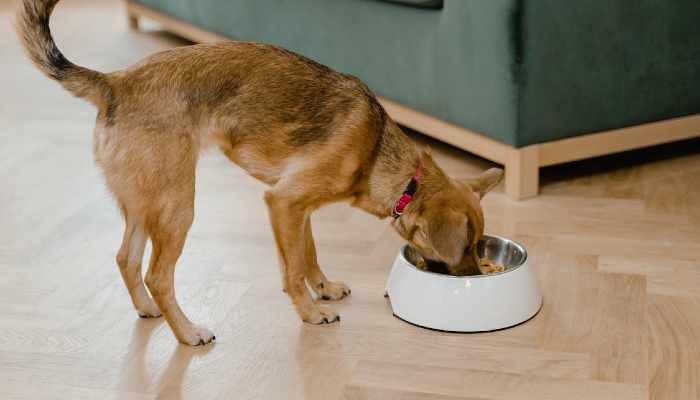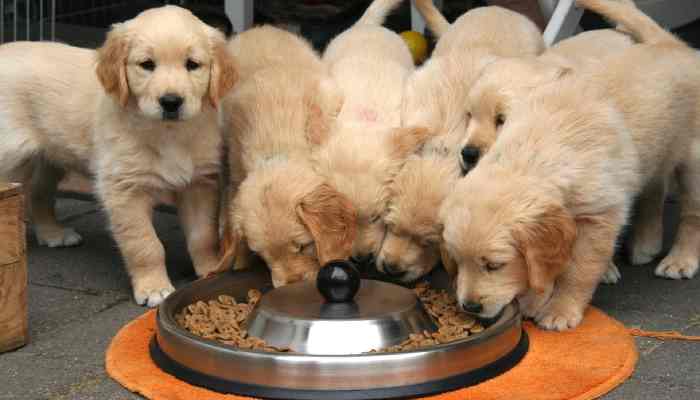With more and more pet owners turning to pups as loving family members, it’s no surprise that proper puppy nutrition is a major concern. Owners want to ensure their furry friends are receiving the best possible diet so they can grow into healthy, happy adult dogs. Developing good nutrition habits early on is essential in making sure your pup gets all the nutrients they need and also avoids unhealthy habits.
The first step in determining what type of food to give a puppy begins with understanding their age. Puppies require different types of food depending on how old they are, and such foods should be chosen based on this information. For instance, puppies between the ages of 8 weeks and 4 months need food designed specifically for them in order to meet their nutrient needs. Meanwhile, puppies between 4 months and 1 year should switch over to adult dog food as their needs change. Knowing what type of food a pup needs at any given time could mean the difference between being able to keep them strong and healthy or potentially dealing with health issues down the road.
When choosing a puppy food, it’s best to go with one that has been formulated by animal nutritionists since these are designed specifically for their age group. Furthermore, opting for high-quality brands provides assurance that the puppy will get more balanced nutrition than cheaper options, which may be cut back on certain key things like protein or calcium. When feeding them adult dog food later on in life, still seek out an option that has been formulated by an animal nutritionist; these foods are often higher in protein which will help maintain muscle mass while your pup grows into adulthood.
Next comes how often you should feed your pup; it’s generally recommended that if younger than 5 months old you should feed at least three times per day whereas if older than 5 months twice per day is sufficient as long as there’s enough food being consumed during those feeds. As always though make sure you follow your veterinarian’s guidance as they know best when it comes to your pet’s specific diet needs depending on their size and activity level. Within each meal it’s also suggested you measure out an appropriate portion rather than leaving it open-ended so your puppy doesn’t overeat or become obese due to excess caloric intake throughout their day—again this portion size number can vary so consult with your trusted vet specialist if needed before committing say 1/2 bowl per meal as an example as this could prove too much depending on your pup’s size etc.
Finally, keep in mind snacks are fine every once in awhile but try not reward too frequently; too many calories can lead not only obesity issues but some puppies may become so obsessed with snacking instead of proper meals due excessive rewarding overtime thus leading digestion issues down the line from poor diet choices such as overindulging—which if left unchecked could cause serious problems uncovering further down upon visit from specialists later on which brings about unnecessary added expense—so again try find moderation within rewards when possible!
When it comes to puppy eating, a well-balanced diet is always important. This means providing quality food with essential vitamins, minerals, proteins and carbohydrates. As much as possible, try to provide organic or natural food products with minimal additives. In order for puppies to get all the necessary nutrients for growth and development, their meals should include lean meats like chicken or fish; whole grains such as brown rice; vegetables like carrots and celery; and fruits like apples. A proper diet should also contain plenty of water in order to keep puppies hydrated throughout the day.
In addition to providing an optimal diet for your puppy, regular meals are important for establishing consistent eating patterns. Pets need food on a schedule rather than grazing all day long which can lead to weight gain or other health issues down the road. The amount of food you feed your pup will depend on their breed, size and age so always consult a veterinarian before making any changes in meal frequency or amounts.
It’s also important not to overfeed your puppy during meal times while also avoiding “people” foods as much as possible. Delicious treats should be used sparingly in order to limit calories but still reward good behaviour once in awhile. Foods such as chocolate can contain toxins that can be harmful when ingested by pets so it’s best avoided altogether when trying to create a healthy diet for puppies. Remember that when it comes down to creating the perfect menu for your pup, moderation is key!


